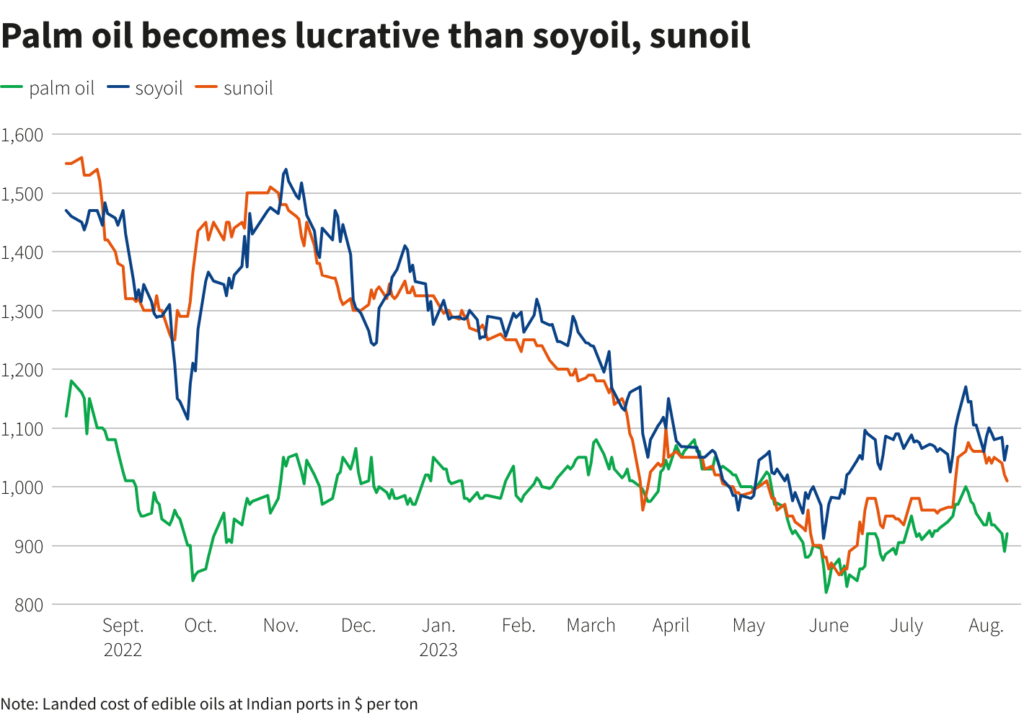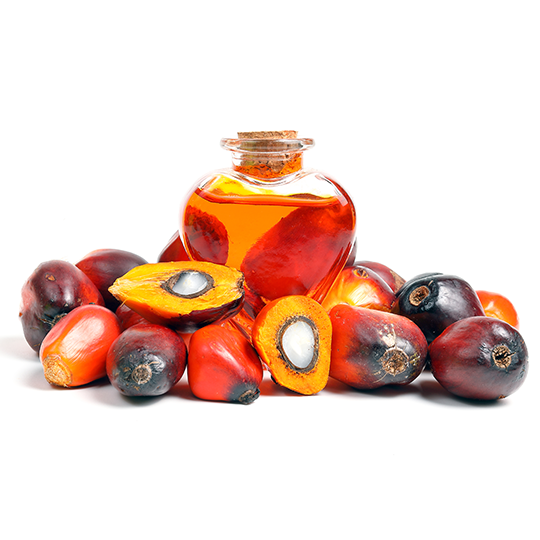The demand for palm oil is increasing as its discount compared to soybean oil and sunflower oil grows. This is attributed to the recent rise in prices of competing oils due to production issues in the US and supply disruptions from the Black Sea region, industry representatives have stated.
It’s expected that this surge in demand will help Indonesia and Malaysia reduce their palm oil inventories while also strengthening futures for Malaysian palm oil.
“Aggressive pricing is aiding palm oil as buyers are switching to palm oil from other oils for supplies for nearly a month,” said Sandeep Asthana, CEO of Patanjali Foods Ltd (PAFO.NS), India’s largest palm oil buyer.
India, the world’s largest consumer of edible oils, imported 1.09 million metric tons of palm oil in July, nearly 60% more than in June, marking the highest in seven months.
According to Asthana, India’s imports will remain stable in August and September as well.
Crude palm oil is being offered at $910 per ton, including cost, insurance, and freight (CIF) to India for September deliveries, compared to $1050 and $1010 for crude soybean oil and crude sunflower oil respectively, as reported by dealers.

Over the past month, soybean oil prices have surged due to production issues in the United States and reduced supplies from Argentina, the largest exporter. Meanwhile, sunflower oil prices have risen after Russia withdrew from the Black Sea grain deal, according to a dealer from a global trading firm based in New Delhi.
The Black Sea region accounts for 60% of the world’s sunflower oil production and 76% of its exports.
“Palm oil prices haven’t risen; instead, they have decreased due to growing inventories in producing countries and have become even cheaper for buyers,” the dealer said.
Price-sensitive Asian buyers traditionally rely on palm oil due to its low cost and fast delivery times.
In addition to India, China, Bangladesh, and Pakistan have also increased their purchases of palm oil for deliveries in August and September, as reported by a trader from Mumbai.
China’s July import of vegetable oil, mostly consisting of palm oil, jumped by 48% compared to the previous year, reaching 778,000 tons.
The discount on palm oil compared to competing oils is likely to gradually decrease as growing exports lead to reduced stocks both in Malaysia and Indonesia, the trader stated.
According to the Malaysian Palm Oil Council, palm oil exports from Malaysia grew by 15.55% to 1.35 million tons in July. In the first ten days of August, Malaysian palm oil product exports rose by 17.5% to 383,795 tons, as reported by AmSpec Agri Malaysia on Thursday.

Omega Sunoil LLC
© 2022 Nature™ all rights reserved